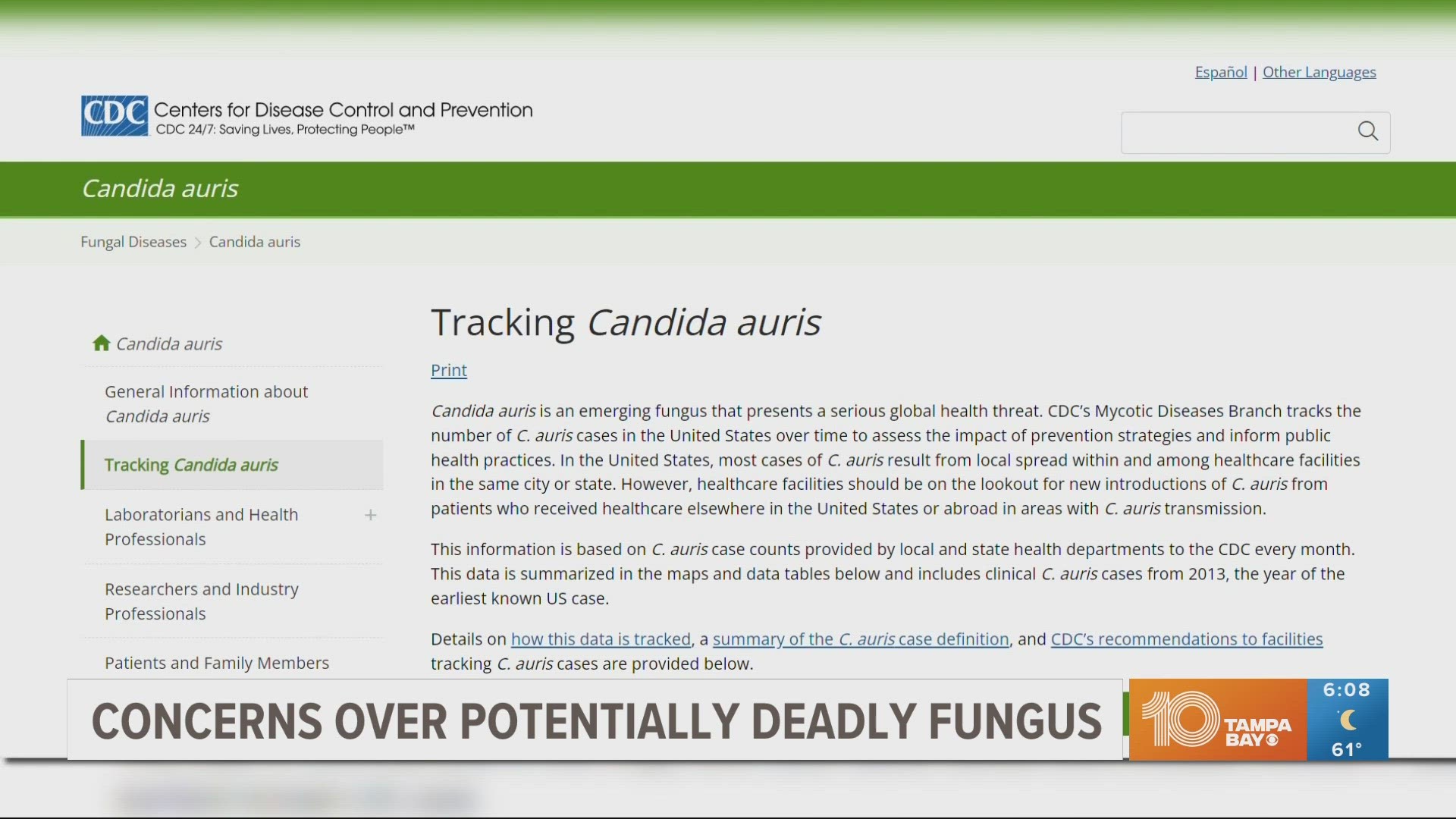TAMPA, Fla. — The Centers for Disease Control and Prevention is warning the public of the increasing threat of a possible spread of a deadly fungus.
Candida auris is an emerging fungus considered an "urgent antimicrobial resistance threat" and according to the government agency, it was spreading at an alarming rate in U.S. healthcare facilities from 2020-2021.
What's also concerning about the situation was a tripling of the number of cases that were resistant to antifungal medicine most recommended for treatment in 2021.
Science News reports before 2020, six people were known to have echinocandin-resistant infections along with four other people having infections resistant to all three classes of drugs for antifungal.
That resistance reportedly developed during treatment using the medicine.
Fast forward to 2021, 19 people were diagnosed with echinocandin-resistant infections and seven with infections resistant to multiple drugs, the magazine explains.
But the CDC says the fungus is not actually a threat to healthy people. People who are very sick, have invasive medical devices or have long or frequent stays at healthcare facilities are at a more increased risk.
With all this information in mind, the CDC has deemed Candida auris as an urgent AR threat, "because it is often resistant to multiple antifungal drugs, spreads easily in healthcare facilities..."
It can also cause severe infections with high death rates.
“The rapid rise and geographic spread of cases is concerning and emphasizes the need for continued surveillance, expanded lab capacity, quicker diagnostic tests, and adherence to proven infection prevention and control,” CDC epidemiologist Dr. Meghan Lyman said in a statement.
The fungus has spread in the U.S. since it was first reported back in 2016 – with a total of 3,270 clinical cases and 7,413 screening cases reported through December 31, 2021.
To learn more about Candida auris, click here.

